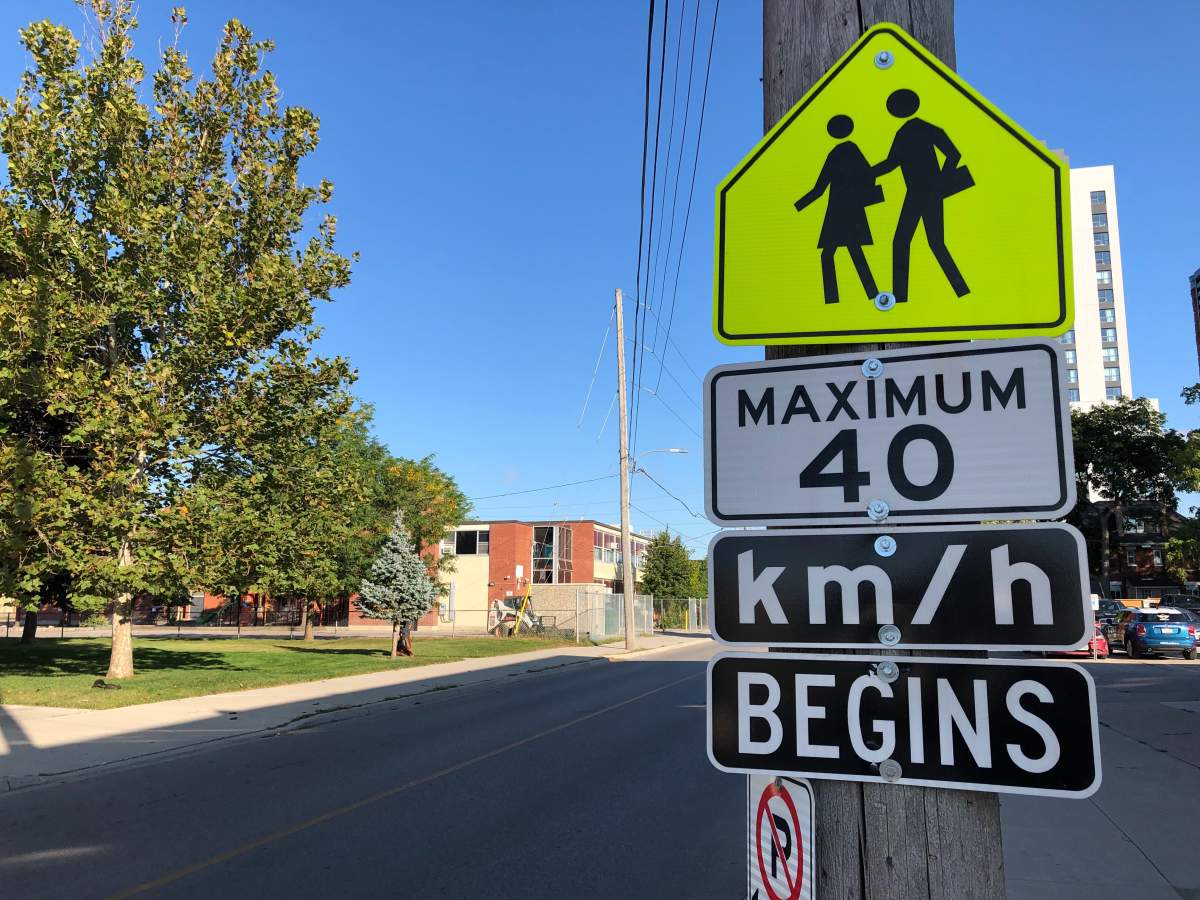City council is pushing ahead on a pair of traffic-calming methods that aim to keep London roads safe.

Tuesday’s meeting at city hall saw councillors rubber-stamp a motion to purchase two photo-radar systems that will be circulated throughout the areas surrounding London schools.
Meanwhile, councillors also gave their approval to reduce speed limits on a number of streets in residential areas.
Photo radar
The move to add photo-radar systems to school zones will have the city sign a five-year contract with Redflex Traffic Systems Canada, allowing the company to provide the City of London with automated speed-enforcement services.
City staff predict the program will cost $5 million over the course of five years. It will see two mobilized photo-radar systems put into use throughout local school zones.
Ward 10 Coun. Paul Van Meerbergen was the lone opponent in council’s vote over the matter, citing concerns over the cost of the program and the number of photo-radar systems that would be provided.
“The other problem with this technology, you’re always in arrears with it,” Van Meerbergen said.
“The offence happens and the unsafe practice happens and then the ticket shows up in the mail.”
The idea was refuted by photo-radar supporter and Ward 3 Coun. Mohamed Salih, who referred to speed humps as unsustainable.

Get breaking National news
“I hear from residents who express wear and tear on their vehicles,” Salih said.
“On one street in particular in my ward, on Fuller Street, people will just speed from speed bump to speed bump so all you hear is revving… and if you have a Ford F-150 or that size of a truck, you can just drive right over.”
The photo-radar program is set to begin in 2020 with a three-month grace period that will only issue warning notices to offenders, a plan that city staff hope will make an easier transition for Londoners.
Reduced speed limits
Another motion passed was a move to lower speed limits in certain residential areas to 40 kilometres per hour, down from 50 kilometres per hour.
Council had considered lowering speed limits along certain downtown roads and other streets that host public transportation, but the decision is being deferred to city staff so that the London Transit Commission (LTC) can be consulted on how this may impact bus operations.
“This is not a delay tactic by the LTC,” said Ward 6 Coun. Phil Squire, who also serves as a commissioner for the public transit operator.
“One of the things I hear consistently from the LTC is that sometimes the city is doing things without consulting with LTC, and there was a specific direction when this matter went back to administration that LTC was to be consulted with,” he added.
Deputy mayor and Ward 4 Coun. Jesse Helmer put forth a compromise that would see some roads reduce their speed limits while allowing others to await LTC consultation.
Ward 11 Coun. Stephen Turner opted for reducing limits even further to 30 kilometres per hour, but his motion was defeated.
A city report on the matter pegged the cost of implementing the reduced speed limits at $1 million over a four-year period, however Helmer’s motion to only reduce speed limits on certain streets will likely see that cost lowered.
WATCH (Sept. 23, 2019): City of Edmonton says driver feedback signs have been effective













Comments
Want to discuss? Please read our Commenting Policy first.